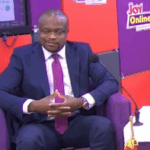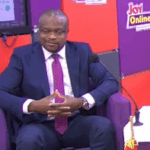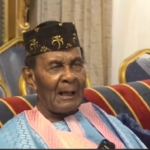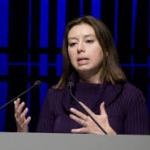
Professor Sharif Mahmud Khalid, Economic Advisor at the Office of the Vice President, says he is confident that the upcoming Mid-Year Budget Review will serve as a catalyst to restore domestic confidence and revitalise Ghana’s economy.
Speaking on JoyNews’ Super Morning Show on Monday, Prof. Khalid underscored the importance of the supplementary budget in rebuilding investor trust locally.
“Domestic confidence — that’s where I see the supplementary budget playing a big role. It’s about helping Ghanaians feel secure enough to invest again in the local market,” he explained.
Since the main budget was read in March, Prof. Khalid said government’s focus has been on establishing financial stability and cooling the overheated economy it inherited from the previous administration.
“We’ve been operating within a tight spending envelope. The March budget was aimed at restoring macroeconomic stability and managing the excesses we inherited.”
He noted that key indicators such as the exchange rate and fiscal discipline have shown marked improvement.
“The cedi has stabilised significantly. Internal controls have been tightened, and government spending is being capped to create the financial space needed to implement strategic programmes.”
Prof. Khalid also reminded the public of the economic challenges inherited by the current government — including disruptions to pension funds and other blue-chip investments during the domestic debt exchange programme.
“We must remember the context. Pensions and other key investments were affected, but those tough decisions helped stabilise the economy.”
He highlighted the government’s approach as a balancing act — pursuing transformational projects while ensuring financial discipline.
“We’re pushing big-ticket initiatives like the Women’s Development Bank and the 24-Hour Economy, but we’re doing so carefully, making sure the economy cools before we try to turn the corner.”
Warning of the risks of overheating, he added:
“If the economy remains overheated, we can’t make the structural changes we aim for. This review is about showing what’s been done since March to stabilise things.”
On the broader outlook, Prof. Khalid said Ghana is still in a period of economic stabilisation, but with encouraging signs.
“We haven’t exited the stability phase yet, but central bank reserves are strong, which is a good sign.”
One of the notable achievements so far, he noted, is the establishment of a functional Gold Board — fulfilling a major campaign promise.
“The Gold Board now has a fully constituted board and a legislative mandate. In the past, gold programmes were inconsistent. Now, we have structure, sustainability, and legal backing, which boosts both local and international investor confidence.”
He shared that international investors, including officials from the International Finance Corporation (IFC), are increasingly optimistic about Ghana’s prospects.
“I recently spoke with an IFC official at the Bank of Ghana. We agreed investor confidence has returned. What we now need to build is strong domestic confidence.”
He concluded by underscoring the crucial role the supplementary budget will play in strengthening Ghana’s economic recovery and boosting local investor trust.
- President Commissions 36.5 Million Dollars Hospital In The Tain District
- You Will Not Go Free For Killing An Hard Working MP – Akufo-Addo To MP’s Killer
- I Will Lead You To Victory – Ato Forson Assures NDC Supporters
Visit Our Social Media for More




